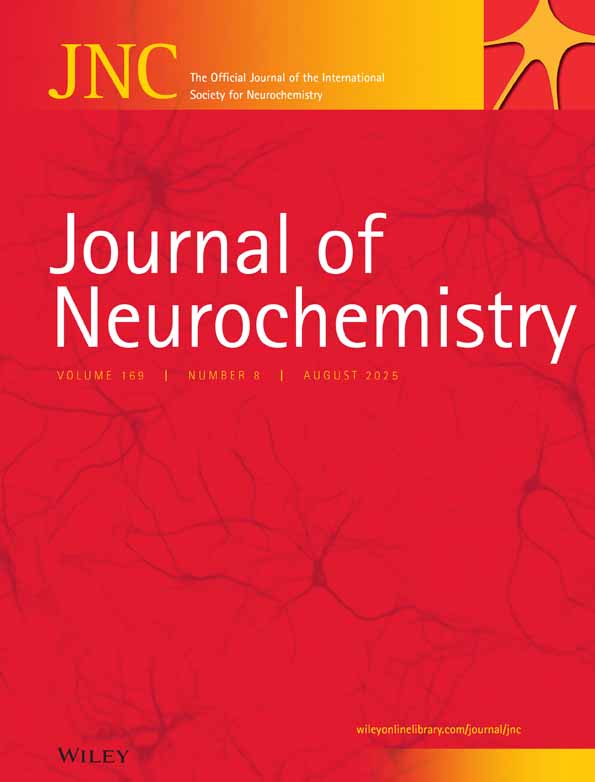Immunoprecipitation of an Affinity-Alkylated Fragment of the Muscarinic Acetylcholine Receptor with an Anti-Ligand Monoclonal Antibody
Abstract
Abstract: A monoclonal antibody raised against the muscarinic acetylcholine affinity-alkylating antagonist propylben-zilylcholine mustard was tested for its ability to recognize affinity-alkylated muscarinic receptors. We demonstrate here that although the antibody will not recognize the mustard when it is covalently linked to the native muscarinic receptor, trypsinization of affinity-labeled membranes releases a proteolytic labeled fragment that can be specifically immunoprecipitated by the antibody. Electrophoretic analysis of the immunoprecipitate indicates that the ligand was associated with a polypeptide of molecular weight 5,000. The recognition of this fragment by the antibody provides a means to immunopurify a portion of the muscarinic receptor that is at or near the ligand binding site.
Abbreviations used:
-
- ELISA
-
- enzyme-linked immunosorptive assay
-
- mAb
-
- monoclonal antibody
-
- mAChR
-
- muscarinic acetylcholine receptor
-
- PBS
-
- phosphate-buffered saline
-
- PMSF
-
- phenylmeth-ylsulfonyl fluoride
-
- PrBCM
-
- propylbenzilylcholine mustard
-
- SDS
-
- sodium dodecyl sulfate




